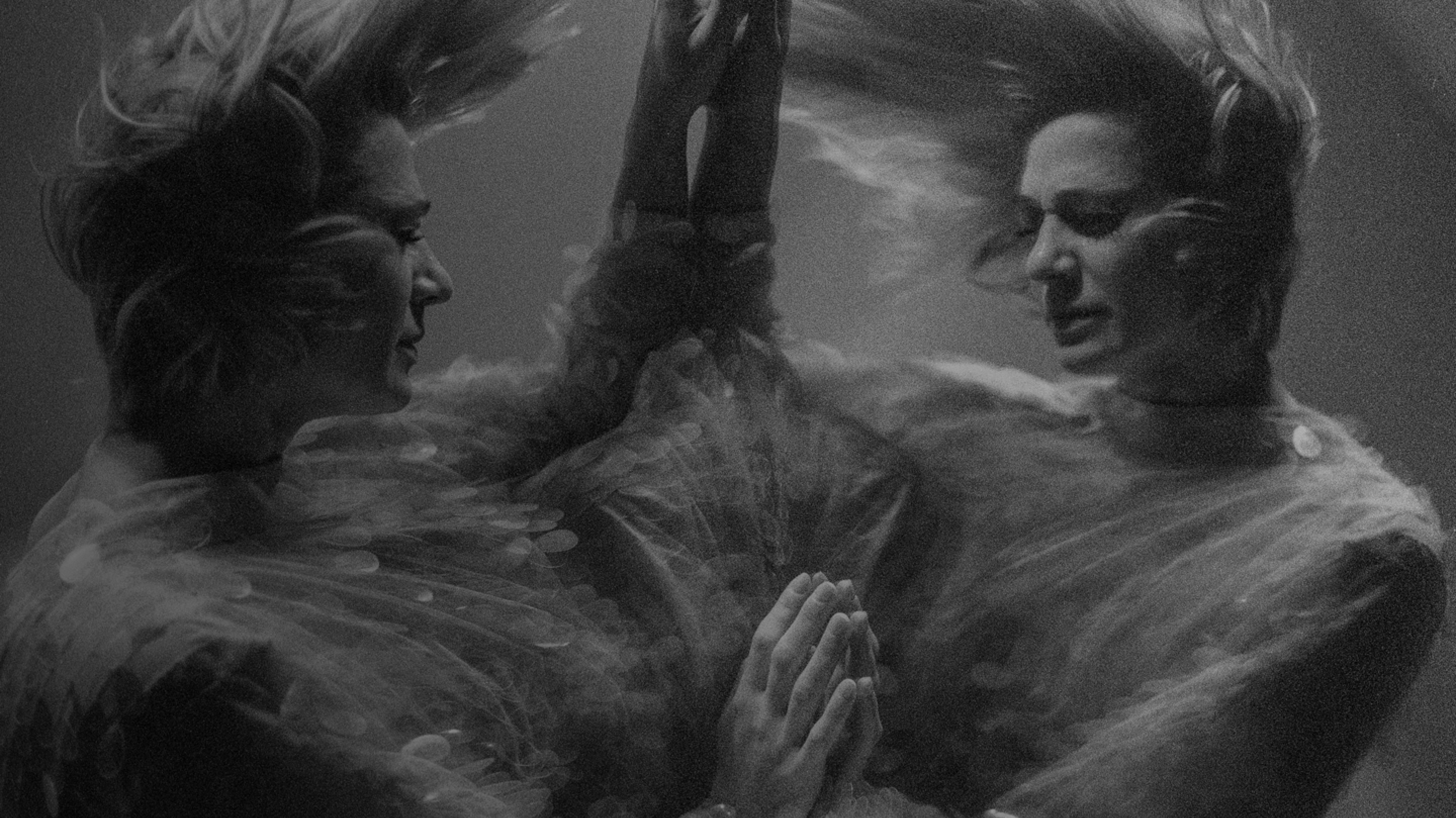
At 8am on a Saturday in April of 2013, Rose Cartwright and her best friend walked into a corner store in London to pick up that week’s copy of The Guardian. As she approached the stack of papers, she laughed. “I was weak at the knees. There was my face plastered across the front with this headline Dirty Little Secretrunning underneath,” she said. “Not my words by the way.”
Rose was 27 at the time, a burgeoning writer living in London who’d just published a candid account of her struggle with Pure O — a little know subtype of Obsessive Compulsive Disorder. The piece was raw, to say the least. In great detail, she shared the nightmare like thoughts that came with her condition. Flashing, repetitive images of things people don’t discuss. For Rose, they often took on a sexual nature.
But despite the darkness of her story, publishing the article was an emotional release. Since 15, she’d lived in silence with these thoughts and images. For most of her family and friends, her international coming out was the first they’d heard of this disorder and the torture it put her through. For the Pure O community, Rose’s piece was the representation they’d been waiting for. Messages poured in from around the world — parents, teens, teachers, politicians. People of every country and walk of life, thanking her for telling a story they never thought would be told. Within those first 24 hours, she’d established herself as the face of a taboo and undiscussed condition. One that thousands of people were living with, but never sharing.
In the years since, Rose’s advocacy has taken many turns. She went on to write a memoir, titled Pure, that further humanized her OCD experience. She joined the board of Intrusive Thoughts Inc., a mental health advocacy nonprofit. She helped create the first ever OCD chatbot, and spoke at leading conferences like Wired London and South by Southwest. And now, she’s launching Made of Millions, a mental health exhibition Seen, and the Channel 4 TV adaption of her book Pure, all within the same year.
Fellow Made of Millions and Intrusive Thoughts Inc. cofounder, Lauren O’Shaughnessy, sat down with Rose to unpack her advocacy journey, creative endeavors and the future of the mental health movement.
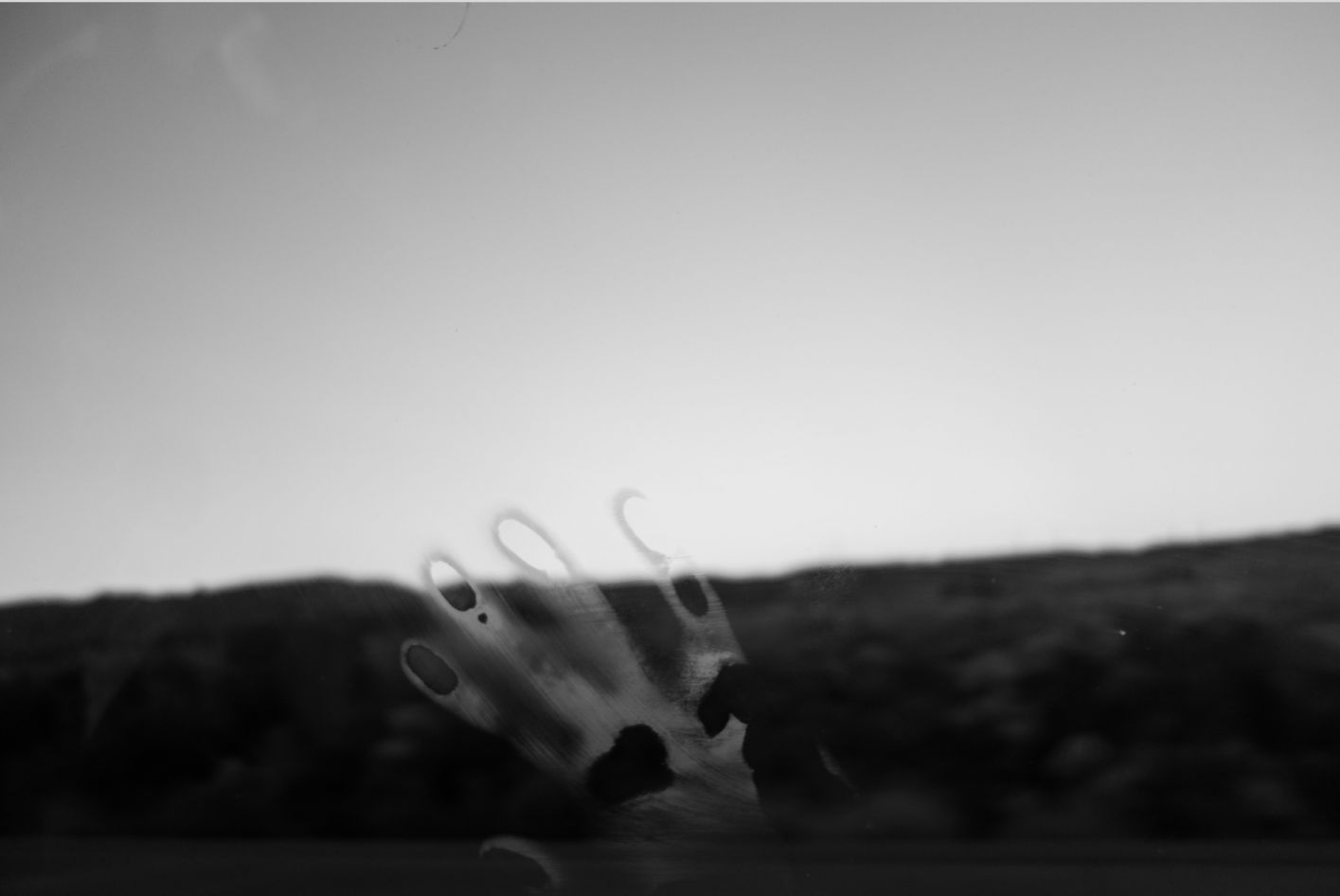
Why don’t we start off by having you tell us a bit more about yourself— hobbies, where you grew up, what you’re currently working on.
I work as a writer and creative director in London in production and commercials. I’ve been in London for 10 years and grew up in a little town called Southbridge in the middle of nowhere. Honestly a lot of my life revolves around work at the moment, but I make time for things like yoga, meditation and playing my bass guitar.
On the topic of work, can you fill us in on your advocacy story and how you got started? When you first opened up, what that was like?
I’m kind of an accidental advocate. I didn’t foresee any of this. I had OCD, I still have OCD, and very taboo obsessive thoughts that I kept secret since I was 15. In my mid twenties when I was on the other side of decent therapy, I had this overwhelming urge to tell my story. It struck me as really unjust that this was something I, and so many other people, were living with in secret.
I was also a burgeoning writer trying to get stuff published and realized that I was in personal possession of a story that had never been told before. A pretty explosive story at that. That was like catnip. It wasn’t really a decision at that point. It kind of just came out of me.
I pitched it to The Guardian in the UK. It was a big memoir piece about my intrusive sexual thoughts, my life and how I’d been suicidal. And to my surprise, they printed it. That was my way of telling everybody in my life what I’d been going through. Off the back of that, came this huge influx of well wishes and questions. I had tapped into this underground world of people who wanted information.
I fell into advocacy because when people call out to you like that it’s hard to ignore it.
You said that the decision was barely a decision. It felt natural. Was there any anxiety right before it was published that maybe it wouldn’t resonate?
Huge anxiety. I guess when I say I didn’t really toy with it, it’s not that it was natural, it just felt like this energy that needed to happen. I knew it was something big, but I also didn’t do it casually.
Some of the stuff I was writing about — the kind of intrusive thoughts I was describing — is shit you don’t tell anybody. But that fear was never a good enough reason for me not to tell my story and it never would have been. Anyone who pitches stuff knows that you never expect it to get published. I was so surprised that it even happened, and by the time it did, the wheels were already in motion and I was shit scared.
Most people had never heard of this disorder or experience before. I had tons of concerns. People are going to be skeptical and not believe me. People are going to think I’m a pervert. People are going to think I’m repressing my sexuality. People that know me are going to be offended by the fact I wasn’t able to share this huge part of myself. Yeah, I was terrified.
But the response was good.
The response was phenomenal. Like, overwhelming and incredible. The Guardian went out on a Saturday morning. I had my best friend staying with me that night. I was like, there’s no way I’m going to the shop to buy this on my own. So we went together in the morning. I saw my face in the stack of magazines and was weak at the knees. I got home and my best friend whose known me my whole life sat there and read it in front of me. That was the first time he’d ever heard. I’d told him the night before… hey, there’s this thing I’ve been dealing with forever and you’re going to find out about it tomorrow. So I sat there and he read the article.
And while he was reading it, I was checking my emails and the first email in my inbox was from a 53 year old lady saying I’d just described her life for the past quarter century. She used the article to show her elderly mother what she’d been going through all that time. From that point on the emails never stopped.
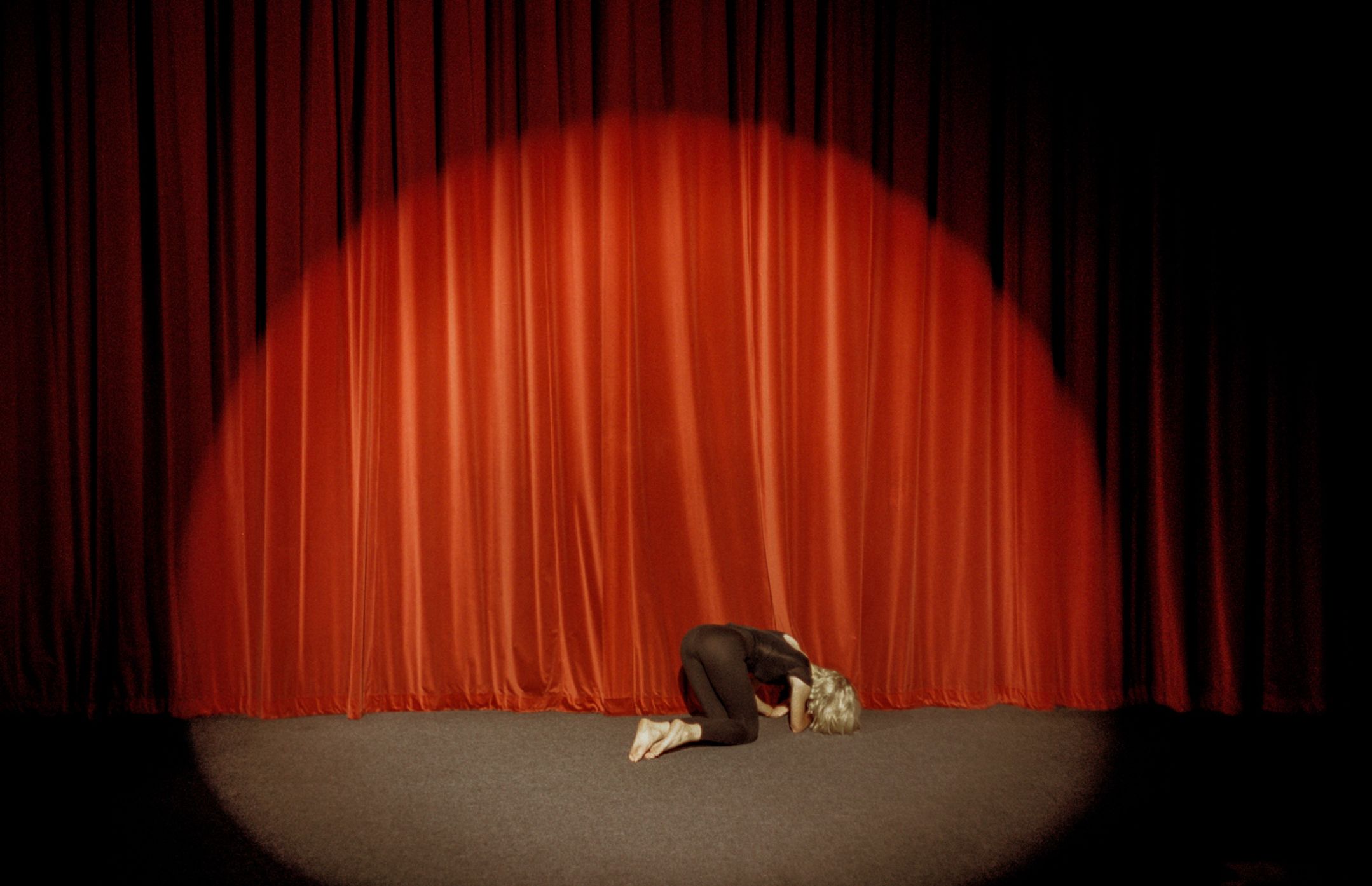
That’s really amazing.
That was five years ago. Now someone reaches out to me everyday with similar stories. So that’s what I mean by accidental advocate. I didn’t ask for it but I also can’t ignore it.
What did it feel like for thousands of people to know something about you that you never thought you’d share?
The whole process of marrying what I wanted to do, which is be a writer, with this big mental suffering that I had inside me, was the most healing thing I could possibly imagine. To reach people and get into their minds with my writing, and for those people to put my article in the hands of the people they love and say ‘this is me’… it’s really difficult to put into words how profound that is. That’s not something you could ever buy. You can never pay four hundred dollars for a therapist to give you that kind of love. It’s been the best thing about being public with my story.
I think that’s actually a pretty good segue into talking about the Seen exhibition. How did the experience of opening up impact the work you and Yumna created?
Seen as a project was always about going against the grain of typical portrayals of people with mental health problems, which tend to be quite limited. Mental health is so subjective, you can’t put people into strict silos. Like oh, that person’s into self-harm or that person is a head clutcher or that person’s a psycho. It doesn’t work like that.
What we tried to do is show a different side of someone who is suffering. Some of the pictures are really raw and I show my scars in them. I was actually crying at one point on set. But then you see the film Yumna and I made, with these photos of me dressed as a cowgirl riding a giant Prozac, and can see we wanted to have fun in addition to taking people to a dark place.
Hopefully it’s a good blend of silly and serious, which is kind of every person right?
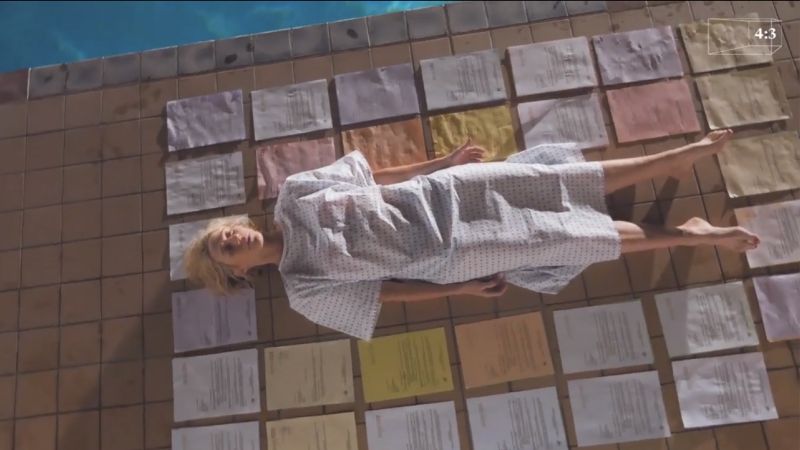
Mindstory
Directed by Rose Cartwright and Yumna Al-Arashi
Would you say that being able to laugh about intrusive thoughts and OCD has been a big coping tool for you?
Yeah it’s everything. No one wants the thing that people can’t laugh about. They empathize so little, that they’re too scared to even crack a joke. That’s my worst nightmare.
I think laughter is really healing, especially with intrusive thoughts or concerns. Some of this stuff is absurd. It goes to places it shouldn’t go. And it happens at times it shouldn’t happen. That’s funny! It’s scary in the moment, but if you can laugh about it afterwards then that’s fantastic.
Is that humor something that people are going to see on your Channel 4 show?
Definitely. Trying to convince people that this had to be humorous was kind of a battle. When I was trying to get published, publishers wanted a misery memoir and I wasn’t up for that. It had to be funny. With the TV show, we have an amazing production company on board, but I still told them from the get go that the juxtaposition between sad and funny was crucial. I’ve stayed close to the production process and it definitely has that combination. The story is so heavy that if you didn’t have that levity, you’d create something unwatchable. It’s a good way of bringing audiences into a topic that’s strangely dark.
What are you hoping the show will achieve and what kind of response are you expecting?
It’s nerve wracking because everything I’ve done up to this point has been in a bit of a bubble. I got published in The Guardian, which is the most liberal middle class publication I could land in. I live in east London. I’m surrounded by people who are ready and willing to be empathetic and open minded to a complicated, nuanced, controversial health story. But that’s not the case when it’s on TV and seen by hundreds of thousands, or maybe millions, of people.
It’s going to be in comment threads and get talked about on Twitter, which scares me because people are mean. And it’s a story that’s really open to misinterpretation, so I know there’s some shit coming my way.
But none of that could possibly eclipse the advocacy opportunity that this is. I was on set a few months ago, and one of the lead characters reads the definition of the type of OCD that I was living with — intrusive sexual thoughts — and I think that’s the first time in history it will be aired on a TV drama. I had a tear in my eye. That’s what Aaron and I could have done with when we were teenagers. It’s scary that it’s going to be in such a mainstream media but it’s also extremely powerful.
I hope that in it’s long format — we have six episodes over six weeks — that it gives the subject matter a chance to settle in people’s minds and hearts. And that it humanizes the experience. This is something that a girl in her early 20s who just moved to London and is trying to be cool is experiencing. If you’re experiencing it too, that’s okay. Again, I never imagined this would happen. But I’ve got to step into it because it’s really fucking exciting.
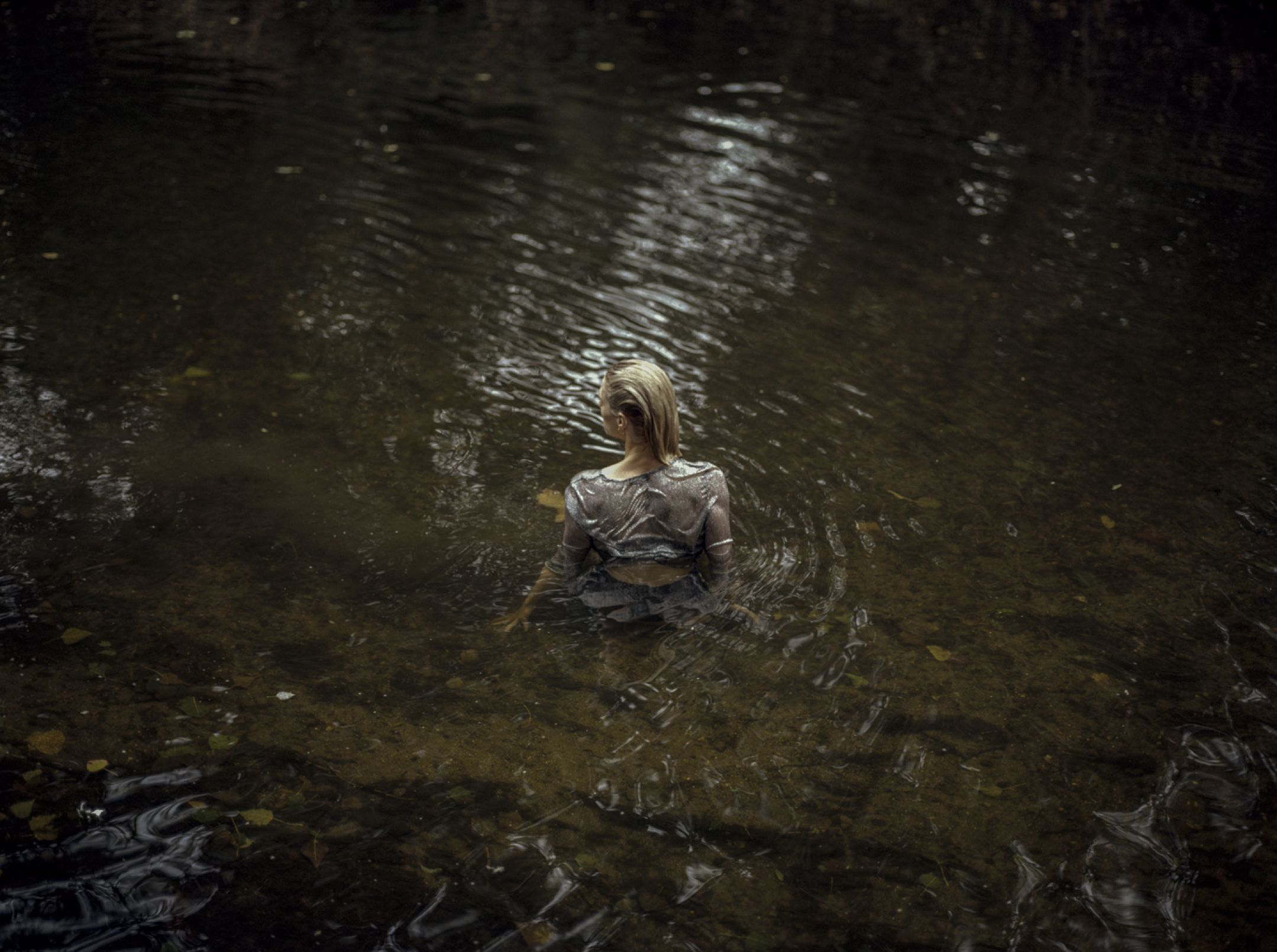
I think it’s going to be game changing for people without OCD as well because this version of the disorder is not what they know. There’s going to be some level of epiphany for the general public along the lines of, “Oh wow, I had no idea.”
Definitely. And that’s a good point. I kind of take it for granted because I understand the condition, but it’s not what people are used to hearing about OCD. I was on a date with a guy a few months ago. I don’t ever talk about this stuff because it’s not exactly an aphrodisiac, but when he asked me about what I do the conversation led to this project and I spent 5 minutes explaining OCD and related things. Afterwards he took a sip of his drink and said, “But that’s not what a OCD is!” Yeah, yeah it is. That’s why I’ve been explaining it. People are quite incredulous. So it’s a challenge to combat that perception.
We did another Q&A with an entrepreneur who didn’t come out with his story until he was 49. He told us that the biggest barrier for him was the label of mental illness. Has your relationship with the term OCD and identifying as someone who struggles, has that changed over time?
It has. I think labels and diagnoses are important because they give us tags that help us navigate the system and find therapists and connect with people. But Obsessive Compulsive Disorder is an interesting case because there’s no biomarker for it. You can’t look inside someone’s brain and say that person has OCD.
And beyond that, it’s all on a spectrum. Some people will have mild obsessive compulsive symptoms, whereas others have full blown debilitating conditions. Where on the spectrum the disorder starts is really, really subjective. I think we have to respect diagnosis and respect labels but we also have to question them at the same time.
I’ve definitely started to question things more as I’ve improved over the years. For one, I’m not necessarily “better.” Better is a fixed destination and I think recovery is nonlinear. I also see traits in myself that wouldn’t exist without all the negative aspects of OCD. I don’t think OCD could get taken out of me and I’d still be the same person. And because of that, l don’t know if I can think of myself as having had a disorder, let alone a disease. But again, it’s subjective and those thoughts will probably change as I get older.
From an identity perspective, have you wrestled with the idea of who is Rose and who is the OCD?
Totally. Am I a mental person and what does that mean? ls it a disorder or is it my brain’s way of making sense of things that happened to me? It’s fucking hard, especially when you meditate and go looking for your identity and it’s not there. Ironically, that feeds into my OCD too. It clings to existential questions like “Who am I?” and “Do I have OCD?” That’s where my head’s at right now.
In the vein of meditating and coping — treatment is such a subjective experience. A lot of people want a cut and dry game plan for getting better. But in reality, it’s more about learning how to manage your condition. What has created balance for you, whether that’s therapy, medication or other activities?
The hit over the head was Exposure Therapy, which I needed when I was at my worst because I was really fucking bad. I was suicidal and my relationship was about to break down. I think a lot of people start therapy when they reach that place. I needed to learn those behavioral skills to get reach a point of safety.
Since then, coping has included a bunch of habits that I would have dismissed at my worst. Things like eating well and doing exercise and making sure that I make time for friends and family. When you’re at your worst, none of that matters. You just need the thoughts out of your head. After you bring the temperature down and have more space to breathe, that’s when the real healing starts. Meditation has been a part of that for me. My writing as well.
Has the Internet or social media slotted into your recovery at all?
None of this would have happened without the internet. If I’d published the article 15 years ago, it would have gone out on a Saturday morning, a few tens of thousands of copies would have been sold and then it would have never been seen again. Whereas when the article went online, within two days it had a hundred and eighty thousand hits. And it was getting shared all over the place. People were reaching out to me. All of that was facilitated by technology. It’s been everything really. It’s the reason why this has snowballed.
Moving forward, where do you see the online universe, technology and Made of Millions in particular, slotting into this space?
Because we’re a new initiative, all of the founders grew up surrounded by tech. We know where to find people. The exhibition partnership with Tumblr is a really good example of that. They’re a good fit because we know people are hiding on that platform. They’re scared and posting anonymously online about their experiences. Tapping into that is really key. At the heart of Made of Millions, is the ability to reach real communities in our towns and cities, but also reach digital communities around the world that aren’t constrained by states and countries.
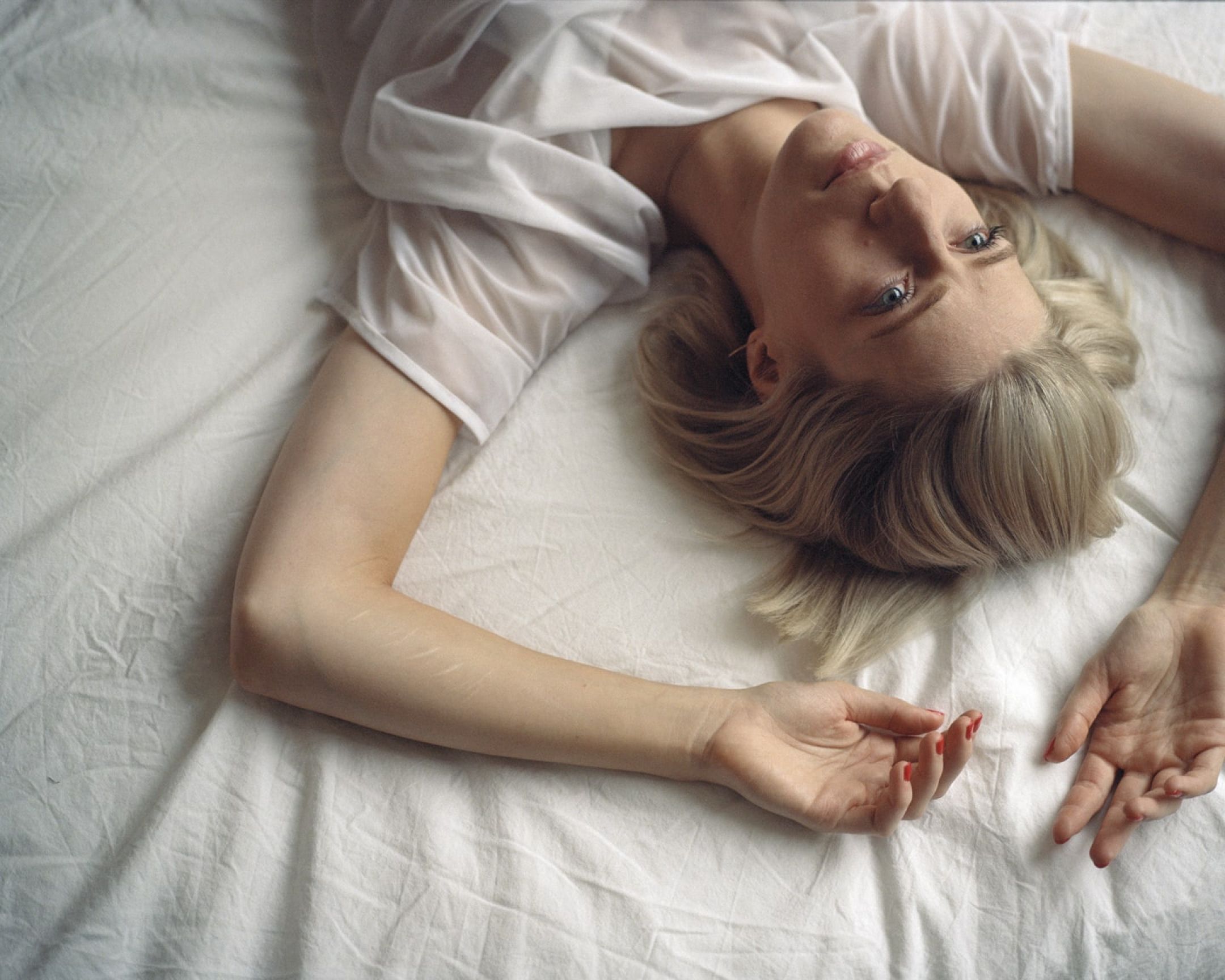
We’ve also discussed the need to not just talk more, but to diversify the conversations were having. So much of what is said about mental health is formulaic and doesn’t hold up when you cross cultural lines. I think that the online space provides a really amazing opportunity for people in other countries and other cultures to come forward and say hey, what you’re getting at is great but my experience has been entirely different.
I think that’s a really good point. Mental health doesn’t exist in a bubble. It’s so reactive to the environment that we live in. I wouldn’t presume to know something about the mental health of someone who lives in a culture that I don’t understand.
What Made of Millions is trying to do is empower them to share their stories and share their version of things, rather than telling people we’ve got this stuff figured out. Which is the model I’ve seen most in advocacy and it’s annoying to be honest. I’m done with having mental health stories PR messaged. The topic is too broad, it’s too diverse. I hope Made of Millions can create a platform for that kind of diversity.
On a personal level, how do you feel about where you’re currently at? You’ve got a ton going on with your TV show and the Seen exhibition and a new platform. Would you say you’re happier now than you were in the early years of advocating?
I’m in a really good place in my life. I feel really fulfilled. I also feel really lucky to be in the position that I’m in. Everything that’s happened to me has been because of luck. Pretty bad luck that I ended up with the mental disorder I did, but good luck that the conditions were right for me to do what I did with it. I feel very privileged and very fortunate.
Looking back, I struggle to identify with who I was. I’m going through this thing right now where I’ve developed an obsessive aversion to my book about obsessive aversion. I don’t want to read it because I feel like a different person from the person who wrote that book. I need to confront that at some point, but for now, I’m just shocked looking back. I can’t imagine hating myself as much as I did then. It’s really taken five years to learn to love myself. That feels very precious to me and I know I need to keep working at that kind of self-respect. I need to nurture it because my own past has taught me how quickly you can lose your grasp.
To wrap things up, what would you tell someone reading this right now who is at the beginning of their journey and trying to get an idea of what their next steps are?
For those experiencing anxiety or extremely low mood, the one thing you want is for it all to stop. You feel like you can’t achieve anything or be anyone until that happens. So we hide away and shut ourselves off. But what I’ve found most valuable, is realizing that improvement can be incremental and that human connection is the way out of suffering.
Try to reach out to others in little ways, even if they only make you feel better briefly. Those moments of light, like sending a thank-you text or kicking a ball around with someone, they matter. You can start chipping away at the beast of mental health problems with small acts of sharing.
And it’s not just about doing little things for yourself, but for the people around you. Made of Millions is rooted in that idea. If we all take baby steps in our advocacy, those efforts that feel inconsequential to one person, become something so much bigger. Ask yourself what you can do at home, or at your school or in your work environment to start making others feel more accepted. It may sound corny, but if we all approached change through that mindsight, we’d accomplish a lot.
So I’d say, do little things. Make connections. Be kind to yourself. And put that energy back into your surroundings.
Are you an artist or advocate?
Send us your stories, ideas and artwork to be considered for site and social content.
Support our work
We’re on a mission to change how the world perceives mental health.
